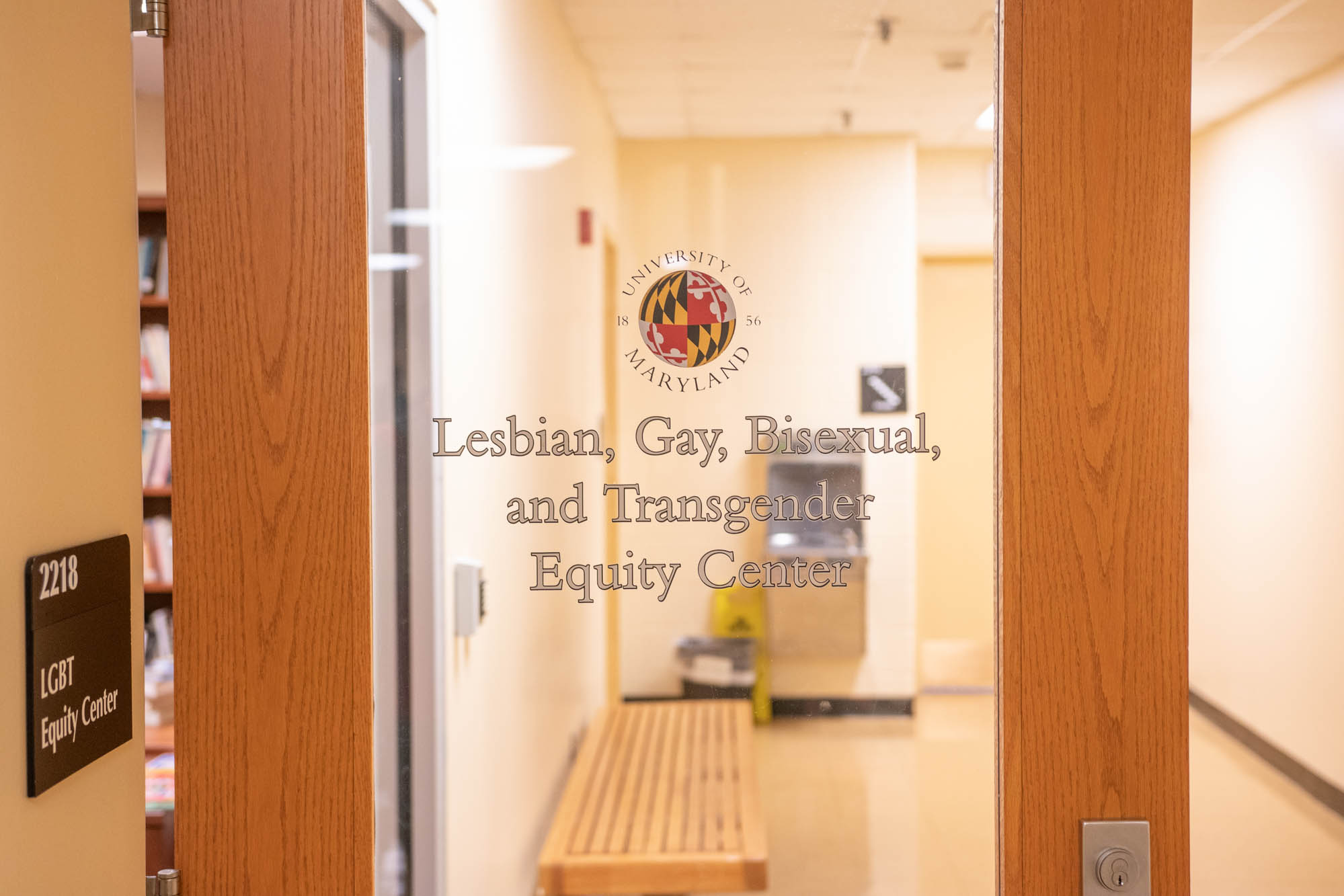John Salerno grew up in Miami, surrounded by a strong community of Latinx friends, including many who identified as LGBTQ+ or allies.
But when Salerno arrived at the University of Maryland as a public health doctoral student a few years ago, he felt something unfamiliar: a sense of isolation. Salerno, who identifies as Latinx and gay, struggled to find friends who were part of either community.
“I felt for the first time what it means to be a minority,” he said.
Now, as the student president of a new group tentatively called LGBTQ+ Students and Allies in Public Health, Salerno is working to create a space where students like him can find a sense of belonging while working to fight for social justice and health equity.
Formed by the Prevention Research Center, a group of researchers in the public health school who study LGBTQ+ populations, Salerno’s group will begin meeting regularly in the spring. It’s planned to be composed of three committees centered around education, research and advocacy efforts.
“In terms of social justice and what’s right and what’s wrong, especially in the political climate we’re in right now, we’ve seen a lot of unfair things happening to the LGBTQ+ community,” Salerno said. “We want a space where we can tackle some of these issues.”
[Read more: UMD center awarded $3.75 million grant to research mental health among LGBT people]
Having the support of the PRC will be very beneficial, Salerno said, and will allow the student group to consult directly with faculty members who are experts in the field. They can also apply for small grants from the center in the future to fund their efforts.
In October, the Centers for Disease Control and Prevention awarded the center with a $3.75 million grant to investigate LGBTQ+ mental health concerns.
Salerno said he plans for the three committees to meet separately and together. Each will serve a different purpose in identifying and helping to eradicate LGBTQ+ health disparities.
Facing a heightened risk of harassment and violence, among other factors, members of the LGBTQ+ community also experience greater risk of encountering various health issues, according to the National Institute on Drug Abuse. For instance, LGBTQ+ adults were more than twice as likely as heterosexual adults to use illicit drugs in the year prior, 2015 data from the National Survey on Drug Use and Health showed.
The education arm of Salerno’s group will raise awareness of health disparities facing the LGBTQ+ community. Though they’re still planning how they will achieve this, he envisions holding workshops on campus to teach faculty, staff and students about predominant issues.
Meanwhile, its research group will work to address and pinpoint these disparities. While nothing is set in stone, Salerno said attendees have pitched conducting studies into whether students perceive their professors to be less accepting than they believe themselves to be.
Lastly, the advocacy committee is planned to put forth solutions to issues currently facing the LGBTQ+ community on campus. One of the proposed projects involves advocating for more inclusive bathrooms in the School of Public Health and dorms.
“This is very problematic for transgender, nonbinary and gender nonconforming individuals who lack a space to comfortably use the restrooms,” Salerno said.
In addition, Salerno said the student group wants to spread awareness through the LGBTQ+ community of the culturally competent mental health care this university offers — something he thinks many students don’t currently know to take advantage of.
[Read more: Local professionals talk about HIV, personal experiences at MICA-hosted panel]
Attendees also expressed an interest in participating in networking events with LGBTQ+ professionals.
“I think the university is making great strides to make this an inclusive university and a safe space for LGBTQ students,” he said. “[But] it’s not inclusive as it seems … there’s always room for improvement.”
These inequities can serve as a roadblock for LGBTQ+ students, Salerno said — not just at this university, but also at institutions across the nation.
Barbara Curbow, an associate director of the PRC who will serve as the faculty adviser for the education committee, sees the group’s goal as developing scholars in LGBTQ+ studies so that the field can continue to grow.
Curbow said she got involved with the group to help with an issue she is passionate about and pay tribute to her LGBTQ+ colleagues and friends.
“There’s significant health inequities,” she said. “They have had an extra hurdle though their career.”
Jen Robinson, a behavioral and community health doctoral student, went to the group’s initial interest meeting on Nov. 21 and said she is excited to see how it will move forward. As a teaching assistant, Robinson also expressed an interest in attending workshops hosted by the group that could help her teach LGBTQ+ students.
“LGBT folks are a particularly vulnerable population … because of things like stigma, lack of access to resources, discrimination,” she said. “[I want] to make sure the classroom is a really welcoming environment.”
In the future, Salerno hopes to expand the group to the surrounding community. But for now, the group will give students an opportunity they don’t usually get — to lead the fight.
“Politicians and policymakers and stakeholders are usually individuals from older generations and younger people — like ourselves like students — don’t really have as much of a case and a voice on things that are going on,” he said, “being able to advocate for these changes is a unique opportunity.”



